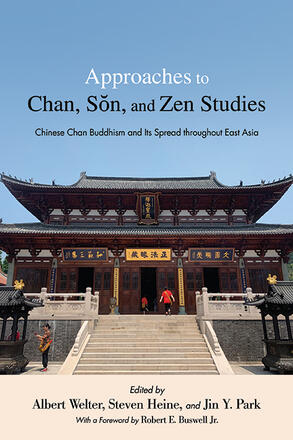
Approaches to Chan, Sŏn, and Zen Studies
Chinese Chan Buddhism and Its Spread throughout East Asia
Alternative formats available from:
A comprehensive treatment of the shared traditions of Chan, Sŏn, and Zen in dynamic interaction across East Asia, acknowledging the changing and growing parameters of the field of Zen studies.
Description
This volume focuses on Chinese Chan Buddhism and its spread across East Asia, with special attention to its impacts on Korean Sŏn and Japanese Zen. Zen enthralled the scholarly world throughout much of the twentieth century, and Zen Studies became a major academic discipline in its wake. Interpreted through the lens of Japanese Zen and its reaction to events in the modern world, Zen Studies incorporated a broad range of Zen-related movements in the East Asian Buddhist world. As broad as the scope of Zen Studies was, however, it was clearly rooted in a Japanese context, and aspects of the "Zen experience" that did not fit modern Japanese Zen aspirations tended to be marginalized and ignored. Approaches to Chan, Sŏn, and Zen Studies acknowledges the move beyond Zen Studies to recognize the changing and growing parameters of the field. The volume also examines the modern dynamics in each of these traditions.
Albert Welter is Professor and Head of the Department of East Asian Studies at the University of Arizona and the author of The Administration of Buddhism in China: A Study and Translation of Zanning and the Topical Compendium of the Buddhist Clergy. Steven Heine is Professor of Religious Studies and History and Director of Asian Studies at Florida International University and the author of Dogen: Japan's Original Zen Teacher. Jin Y. Park is Professor and Chair of the Department of Philosophy and Religion at American University and the author of Women and Buddhist Philosophy: Engaging Zen Master Kim Iryŏp.
Reviews
"Scholars of East Asian religions and Buddhism will find a range of inspiring scholarship here." — Religious Studies Review
"This book focuses on the much-neglected role of Chan in guiding an international movement of Buddhist philosophy and practice throughout East Asia. The extensive bibliography is itself an invaluable research tool for scholars, drawing on both recent publications and traditional texts. The editors and contributors deftly challenge 'biases inherent in Zen Studies' through approaches that draw on materials that have been overlooked or ignored. The result is a much richer and complex view of Chan and Sŏn Studies reaching beyond long-prevailing, simplistic assumptions about Zen Studies." — Sandra A. Wawrytko, coeditor of Dao Companion to Chinese Buddhist Philosophy